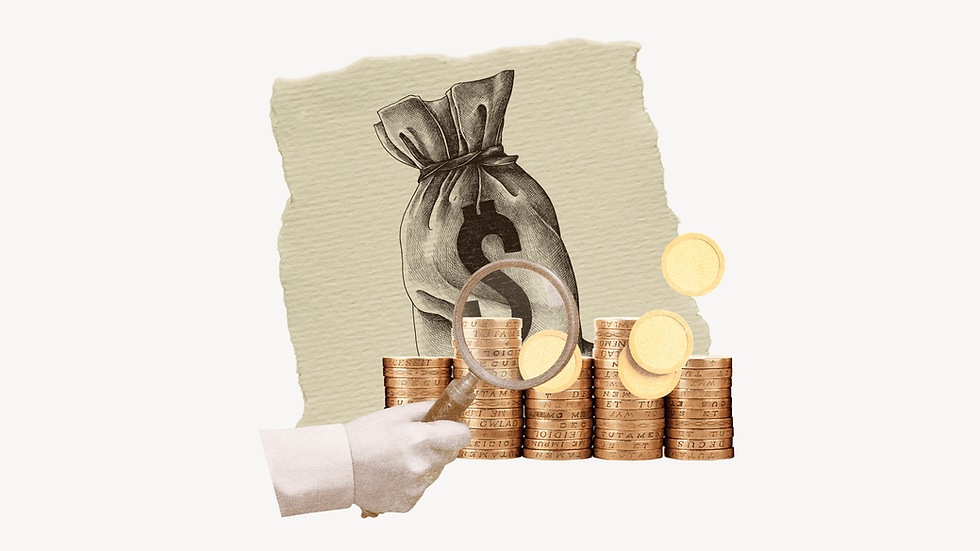How Islamic Finance Can Shape Global Markets
- Mohammad Rahman
- Jul 1, 2025
- 3 min read

In a world increasingly focused on ethical investment, sustainability, and inclusive growth, Islamic finance is emerging as a powerful force with the potential to reshape global markets. Rooted in the principles of Shariah (Islamic law), this financial system offers a values-based alternative to conventional finance, emphasizing transparency, fairness, and real economic activity.
Though historically centered in Muslim-majority countries, Islamic finance is now gaining traction worldwide, appealing to a broader audience concerned with social responsibility and long-term stability. As its influence grows, it’s important to explore how Islamic finance can positively impact the global financial landscape.
Understanding the Foundations of Islamic Finance
Islamic finance operates on a framework that prohibits interest (riba), excessive uncertainty (gharar), and speculative behavior (maysir). It requires financial transactions to be backed by tangible assets, and it promotes risk-sharing rather than risk transfer.
Some key Islamic financial principles include:
Profit-and-loss sharing (via contracts like Mudarabah and Musharakah)
Asset-backed financing (using Ijara, Murabaha, and Istisna)
No involvement in haram (prohibited) industries such as alcohol, gambling, and weapons
Emphasis on ethical, socially responsible investments
These principles not only make Islamic finance distinct but also highly relevant in a world seeking more accountability and ethical governance in financial systems.
Global Growth and Recognition
Islamic finance has grown rapidly over the past two decades. According to the Islamic Financial Services Board (IFSB), the global Islamic finance industry exceeded $3 trillion in assets in 2023, spanning over 80 countries.
Non-Muslim countries such as the UK, Luxembourg, Hong Kong, and South Africa have issued sovereign Sukuk (Islamic bonds), and major international banks like HSBC, Standard Chartered, and Citibank offer Shariah-compliant services. These developments reflect rising global interest in financial models that balance profit with purpose.
How Islamic Finance Can Shape the Global Financial System
1. Promoting Ethical Investment
At its core, Islamic finance aligns closely with Environmental, Social, and Governance (ESG) principles. It prohibits investment in harmful industries and encourages socially responsible economic activities. This alignment positions Islamic finance as a natural partner in advancing global sustainability agendas.
For example, Green Sukuk—Islamic bonds used to fund environmental projects—are already being issued by countries like Indonesia and Malaysia, helping to tackle climate change while staying Shariah-compliant.
2. Enhancing Financial Stability
Islamic finance discourages speculation and leverages real assets. Unlike traditional banking, where money can be lent freely for interest, Islamic banks must be tied to a physical good or service. This reduces systemic risk and promotes long-term financial stability, which could help global markets recover more sustainably from crises.
During the 2008 financial crisis, many Islamic banks were insulated from major losses due to their asset-backed, low-leverage models. This resilience has drawn interest from economists and regulators worldwide.
3. Encouraging Financial Inclusion
Islamic microfinance and Shariah-compliant banking offer alternatives to millions who are excluded from conventional financial services due to religious beliefs or structural barriers.
By offering interest-free loans, risk-sharing arrangements, and community-focused financing models, Islamic finance empowers underbanked populations, especially in rural areas of Africa, South Asia, and the Middle East. This financial inclusion can stimulate entrepreneurship, job creation, and economic development on a global scale.
4. Driving Innovation in Financial Products
Islamic finance has led to the development of innovative financial instruments like Sukuk, which differ from conventional bonds by offering ownership in assets rather than debt. Sukuk are increasingly used to fund infrastructure, energy, and public services around the world, providing governments and corporations with ethical alternatives to conventional debt financing.
As digital banking and fintech evolve, we’re also seeing the emergence of Shariah-compliant robo-advisors, crowdfunding platforms, and blockchain solutions that align Islamic finance with modern financial technology.
Challenges to Global Integration
While promising, Islamic finance does face some challenges:
Lack of standardization across countries and institutions
Limited awareness among non-Muslim investors and financial professionals
Regulatory barriers in countries with no Islamic finance framework
Shortage of qualified Shariah scholars with financial expertise
However, collaborative efforts are underway. Institutions like the Accounting and Auditing Organization for Islamic Financial Institutions (AAOIFI) and Islamic Financial Services Board (IFSB) are working toward harmonizing standards and practices, making it easier for global players to enter the Islamic finance space.
Conclusion: A Global Future for Islamic Finance
Islamic finance presents a compelling model of ethical, inclusive, and sustainable finance that resonates far beyond the Muslim world. Its principles of fairness, shared risk, asset-backed financing, and ethical investment make it a strong candidate for addressing many of the challenges facing global markets today.
As awareness grows and integration improves, Islamic finance can become a vital part of the global financial ecosystem—promoting responsible growth, reducing economic inequality, and helping reshape markets to serve humanity, not just profit margins.
Whether you are a policymaker, investor, or financial institution, exploring the potential of Islamic finance could unlock new opportunities for impact-driven, resilient economic progress in the years ahead.
.png)









Comments